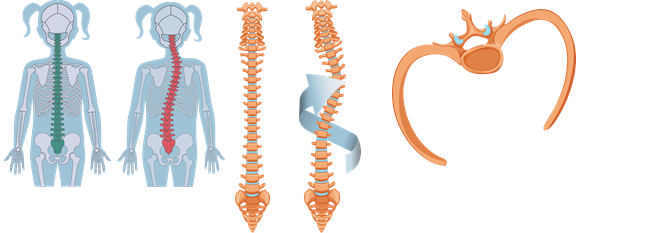What we do
About our project
Background
The Scolioscope is an innovative instrument empowering parents to check their children at home for the presence of Scoliosis. In collaboration with the Youth Health Care a Screening Program was developed embedding the home screening test in a clear and simple care pathway for families.

Step 1 @ home Step 2 at Youth Health Care Step 3 Radiograph
Scoliosis is not uncommon in children (2-4%) and it often develops without any complaints resulting in a twisted spine (or spinal deformity). When the curve gets bigger complaints can occur and it can impact quality of life. Bigger curves require surgery to prevent complaints. Large portions of the spine will be fused together for the rest of a child’s life.

When discovered early conservative treatment options can be prescribed that will prevent worsening of the curve. Early detection is key in preventing surgery, this is why the Scolioscope and the @ home screening program were developed. This way parents can check the back of their children.
Objectives
The mission of the project is to install nationwide Screening for Scoliosis.
This project aims to collect data showing the (cost) effectiveness of this innovative home screening program, via validation studies, feasibility studies and a larger prospective cost effectiveness study.
Another part of this project is gathering data on our local brace effectivity and a study on Cobb angle at first visit in a population without screening.
Our team
Monique van der Veen (Youth Health Care physician South Holland West)
Nelleke Meester-Maris (Youth Health Care physician South Holland West)
Julia Holleman (medical student and researcher)
Tatum Koek (medical student)
Eveline Heijnsdijk (epidemiologist)



